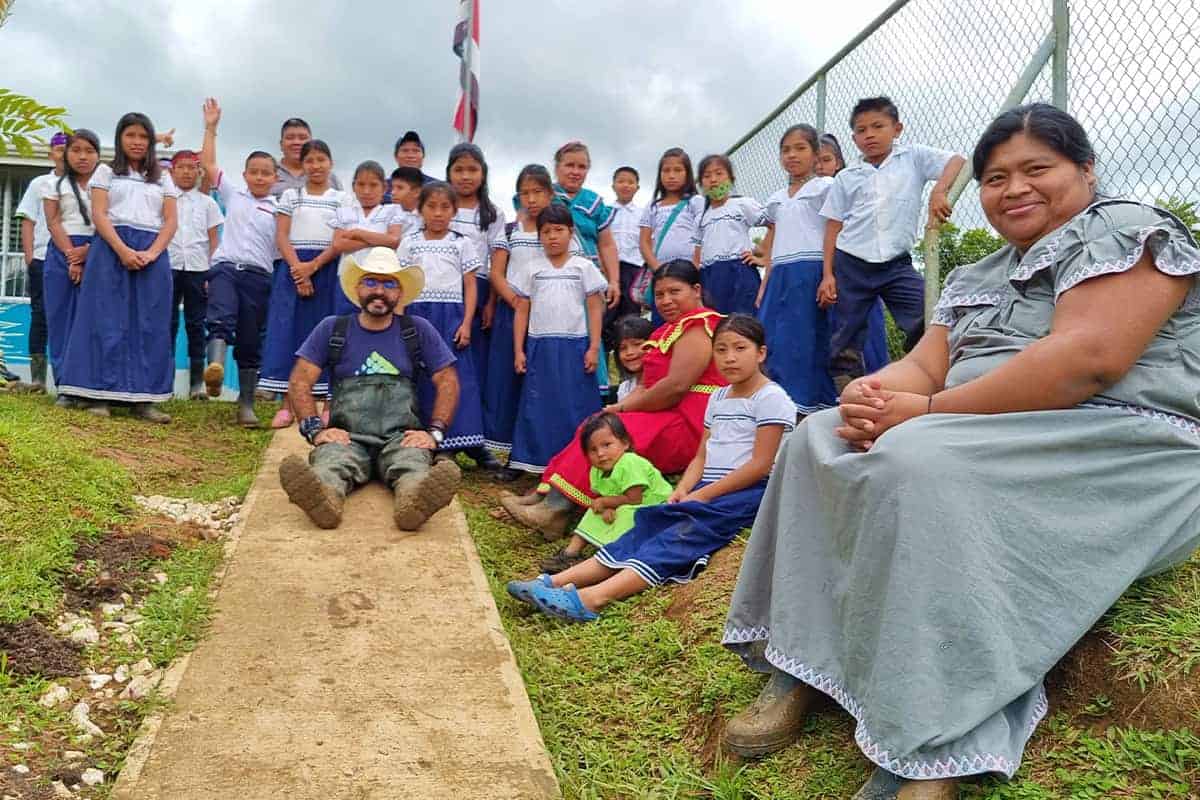According to United Nations Food and Agriculture Organization (FAO), the number of undernourished people in the world continued to rise in 2021. Between 720-811 million people in the world faced hunger in 2020. Compared with 2019, 46 million more people in Africa, almost 57 million more in Asia, and about 14 million more in Latin America and the Caribbean were affected by hunger in 2020.
Additionally, nearly one of every three people in the world (2.37 billion) did not have access to adequate food in 2020 – that’s an increase of almost 320 million people in just one year.
When transformed with greater resilience to major drivers, including conflict, climate variability and extremes, pandemics and economic slowdowns and downturns, food systems can provide affordable healthy diets that are sustainable and inclusive which may become a powerful driving force towards ending hunger, food insecurity and malnutrition in all its forms, for all.
In Costa Rica, the pandemic has severe impacts and does not discriminate. It is thought that the undernourished population increased during the last 2 years. Blessed with fertile lands and many months of rain, the country can recover from the impact and help its population, especially its vulnerable communities.
However, tackling these issues with the help of national institutes and local governments alone, and with uni-disciplinary approaches, can delay the process, causing more pressure on the vulnerable communities around Costa Rica.
To speed up economic recovery and secure sustainable development of communities in Costa Rica, an alliance was made between a funding body, a Non-Government Organization (NGO) and Singapore based tech company. The objective of this alliance is to spread sustainable development around Costa Rica in a short period of time and improve the livelihood of the vulnerable communities in remote areas of the country.
For understanding the necessity and giving the priority to the areas and communities, an NGO named “Dejando Huella” was involved. With many years of experience in remote Costa Rican areas, Dejando Huella, has a good understanding on mapping the needs of the vulnerable communities especially indigenous people of Costa Rica. Based on their understanding, Dejando Huella selected the indigenous community of “La Casona”.
The indigenous community of La Casona, is settled 40 minutes away from San Vito a small town located in the South of Costa Rica. The community´s economical activities are mostly handicrafts, cultural endeavors, tourism, service industry, coffee, cacao, and banana farms. As expected, the pandemic forced many people within the community out of work, hence, in two years, poverty, hunger and malnutrition spread heavily.
The priority was given to children and youth within the community, and 3 education centers (La Casona High School, Brüs Malis primary school, school of Ngöbegüe) were selected.
These centers are responsible for the education of nearly 800 students in different ages ranging from 5 to 18 years old. As part of Costa Rican government´s program, these students consume 2 meals per day in these centers but due to pandemic and eruption in the supply chain, the centers faced various problems in receiving healthy and nutritious food and raw materials.
On the other hand, with rain all year around, the community has access to unlimited amount of freshwater for human and animals’ consumption, and growing plants. Therefore, Dejando Huella sought a technology that can take advantage of the environmental aspect in these areas and enable these centers to produce their own healthy, nutritious, and organic foods.
Poseidon-AI™ artisanal modules enables communities in remote areas to produce their own organic, sustainable, and environmentally friendly fish and vegetables using rainwater and clay tiles. The systems use 500 liters of rainwater with constant circulation of 200 liters, creating a suitable environment for production of fish, shrimps, and vegetables. Not using soil, the systems are easy to transport, and with the help of clay tiles, the plants grow healthy and rapidly.
This technology comes from a Singapore based company, enabling people during the pandemic to grow their own fish, shrimp and vegetables in small areas and with minimum costs. The system allows the production of 80 kilograms of fish and shrimp and 20 kilograms of vegetables every year.
These systems were selected by Dejando Huella for these education centers, allowing students to consume 700 kg of organic fish every 4 months, and have access to fresh vegetables such as parsley, lettuce, green onions, cilantro, and celery all year round.
Due to the large scale of this project and the need to move various sources both local and international, it was necessary to involve funding bodies to support this project. For this reason, the project was presented to Banco Nacional’s sustainable development fund for communities. The proposal was presented with the goals of creating jobs for the families, empowering women and help create extra sources of protein for the children and youth studying in these education centers.
The project approved by the committee of Banco Nacional and 24 Poseidon-AI™ artisanal modules were bought. The systems were installed based on the number of students in each education center. For this project, 800 fish, 1200 plants, 1500 clay tiles, 105 kilograms fish feeds, and 50 meters of woods were transferred to the indigenous zone.
Also, 15 tons of rainwater was gathered and used. Additionally, experts, volunteers and workers were involved in various related thematic areas. For optimum usage of the systems, different capacity building workshops and classes in areas such as water management, fish and plant physiology, biology, feeding and sustainable development for 100 students, professors and parents were organized.
This multi-disciplinary project involves multiple sciences to face challenges caused by the pandemic in the 21st century. Although the project is in its early stage, it is believed that achieving the mentioned goals can significantly improve the livelihood of the communities. Furthermore, the communities will be prepared and well trained to sustain better quality of life if similar phenomena such as global pandemic or other supply chain disruption occurs.
By Amaj Rahimi Midani (Specialized in Marine Resources and Aquaculture, a.rahimi-midani@poseidon-ai.com )






